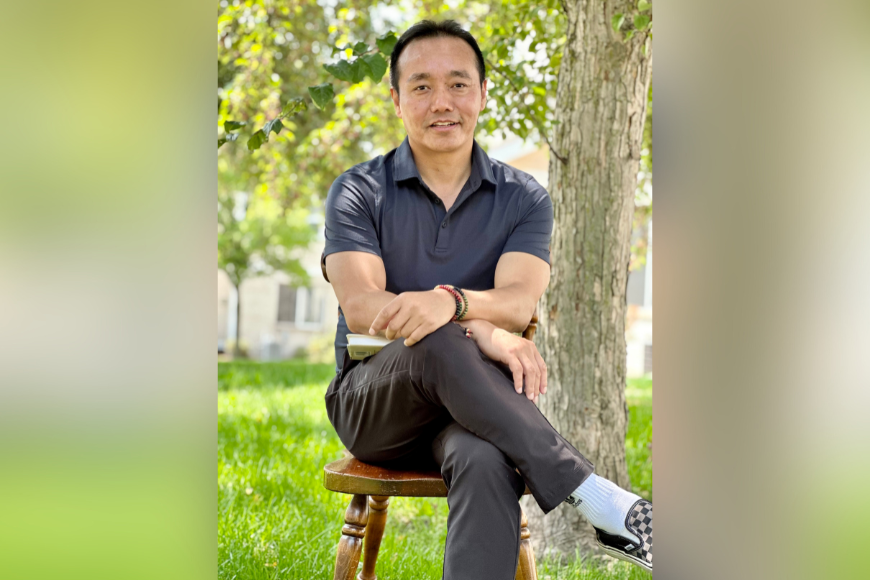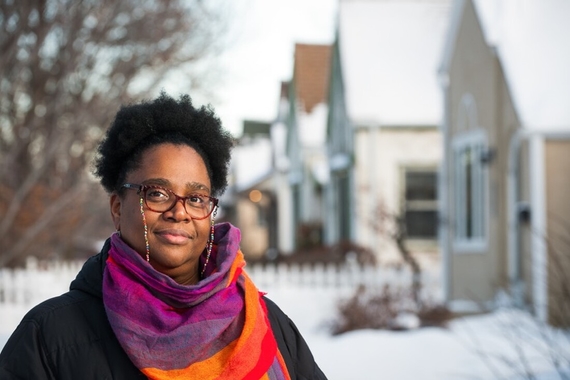Tenzin Namdul: Bringing Together Modern and Tibetan Medicine
Tenzin Namdul (BA’11, anthropology), recipient of the Emerging Alumni Award, has studied Tibetan medicine and culture for years. His work takes him around the globe, uniting communities and transforming healthcare for the better.
What do you do professionally?
I am an assistant professor and the director of Tibetan Healing Initiative (THI) at the University of Minnesota Bakken Center for Spirituality and Healing. My research focuses on aging and end-of-life care through the lens of Tibetan medical and Buddhist mind-body paradigm.
How are you involved in the community?
My research and teaching are driven by my commitment to bridge modern science and medicine with Tibetan medicine and Buddhist contemplative science. Since 2014, I have taught neuroscience and English to Tibetan Buddhist scholars in South India under the Emory-Tibet Science Initiative program and have subsequently worked with them in designing and conducting research on Alzheimer’s disease. Likewise, I collaborated with Tibetan doctors in North America to design and implement research to investigate the efficacy of Tibetan herbal formulations for COVID-19 patients. Currently, I work with Tibetan immigrants in Minnesota to develop an intergenerational education program among Tibetans to preserve and promote Tibetan culture; and to employ Tibetan cultural resources in building culturally informed education and healthcare tools for the wider community.
How did your time in CLA inspire you to pursue your path?
I vividly remember during an introduction to anthropology class being struck by the similarities between the fundamental concepts of anthropology and Tibetan medicine. In both fields, the subject of investigation is studied holistically using both qualitative and quantitative methods, with generous freedom to study metaphysical phenomena. That paved the way to pursue anthropology to examine questions I was grappling with: how does mind-body relationship work in caring for patients, particularly terminal patients; what is consciousness/mind, what is the role of death in human flourishing, etc.
What is your favorite memory from your time as a student?
My favorite memory as a student was being able to hang out with like-minded people, especially to be able to spend time with faculty and learn from them. For instance, one of my anthropology professors, Dr. Hoon Song, took me under his wing, mentored me, and taught me how to see the world from an anthropological perspective.
What advice would you give to current CLA students?
I have learned during my time in CLA and through the course of my academic pursuance that if I set a bigger goal—a goal that transcends personal interest—and persevere, others will come around to support and help. So, my advice is to develop a purpose that goes beyond personal interest, stay focused, be humble, and the world will come around to root for you.
How do you spend your free time? What "fills your cup"?
My rigorous graduate school training has made me appreciate mornings, so morning time is special. Hence, enjoying my morning coffee with a good read or writing. I also get spiritually elevated in nature, watching sci-fi movies, or cooking.
What was your reaction to receiving this award?
Besides feeling deep gratitude to everyone who helped me to get to this stage, I felt reconnected to CLA in different ways, like getting back to home. It also made me realize the responsibility that comes with it.
What's next? What are your personal/professional goals for the next five years?
As the director of THI, my goals are to expand our work in developing an integrated and holistic health model for the Minnesotan community and beyond, as well as to empower Tibetans to take ownership of their culture via community-engaged projects.
2023 Recipients
This story was edited by an undergraduate student.
Edited by Jennifer Nguyen



